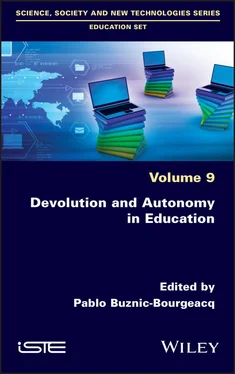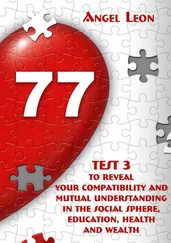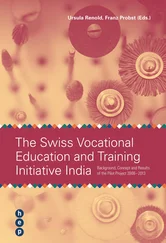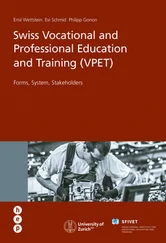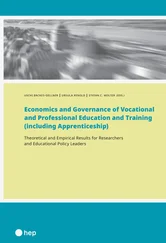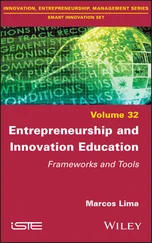The concept of devolution
Brousseau borrows the term devolution from legal vocabulary, formed from the Latin devolere (Medieval Latin), which means “to roll up and down”. In use today in political and administrative language, this expression is usually applied to the movement of transferring power from one jurisdiction, or even from the controlling authority, over the actions and resources associated with these responsibilities. Although inspired by the legal terminology applied to civil matters (law of succession), this concept used in the sphere of public affairs is generally used to refer to a top–down approach to subsidiarity, a subject that is now closely regulated in all rule of law regimes.
In his glossary, Guy Brousseau considers devolution a process that he defines as follows:
The process by which the teacher manages to place the student as a simple actant in adidactic situation […]. In this way, the teacher seeks to ensure that the student’s action is produced and justified only by the needs of the milieu and by his or her knowledge, and not by the interpretation of the teacher’s didactic procedures. For the teacher, devolution consists not only of proposing a situation to the student that should provoke in him or her an activity that has not been agreed previously, but also in making him or her feel responsible for obtaining the proposed result, and in accepting the idea that the solution depends only on the exercise of the knowledge he or she already possesses. The student accepts responsibility under conditions that an adult would not accept, because if there is a problem and then knowledge is created, it is because there is doubt and ignorance first. This is why devolution creates responsibility, but not guilt in the event of failure (see paradox of devolution). Devolution is the counterpart to institutionalization. These are the two didactic interventions of the teacher in the “pupil – milieu – knowledge” situation. It is an important sui generis element of the didactic contract (Brousseau 2003, p. 5) 1 .
He completes this definition in the article “ le paradoxe de la dévolution ”:
The teacher has a social obligation to teach everything necessary about knowledge. The student – especially when he or she is failing – asks the teacher to do so. So the more the teacher gives in to these requests and reveals what he or she wants, the more precisely the teacher tells the student what he or she needs to do, the more likely the student is to lose his or her chances of obtaining and objectively observing the learning that he or she is actually trying to achieve. This is the first paradox: it is not quite a contradiction, but knowledge and the project of teaching will have to advance behind a veil. This didactic contract thus puts the teacher before a real paradoxical injunction: everything he or she does to make the student produce the behaviors he or she expects, tends to deprive the latter of the conditions necessary for understanding and learning the targeted notion: if the teacher says what he or she wants, the student can no longer obtain it. However, the student is also faced with a paradoxical injunction: if he or she accepts that, according to the contract, the teacher teaches him or her the results, the student does not establish them himself or herself and therefore does not learn mathematics, does not master them. If, on the contrary, he or she refuses any information from the teacher, then the didactic relationship is broken. To learn implies, for him or her, that he or she accepts the didactic relationship but that he or she considers it provisional and tries to reject it (Brousseau 2003, p. 9).
In the following section, I will come back to some elements of these glossary articles, and first, I will attempt to characterize the terms “institutional knowledge” and “situational knowledge”, which Brousseau uses deliberately in the above articles.
Institutional knowledge and situational knowledge: a fundamental distinction
The distinction between institutional knowledge and situational knowledge exists in the philosophical field, in which it seems to have different delimitations depending on the authors, if we refer to a blog in which the subject appears (Juignet 2016):
The French term “connaissance” [situational knowledge] comes from the Old French “conoistre”, which dates back to the 11th century. The latter derives from the Latin cognescere and noscere , which means, at the same time, to learn, to know and to “know how”. Knowledge derives from the Latin sapere and sapio , which means to have taste, intelligence, prudence. In everyday language [in French], “connaissance” and “savoir” are more or less synonymous.
It is, however, interesting to distinguish the active process of production, which we shall call “situational knowledge” from its result, which we shall call “institutional knowledge” or “acquired knowledge”. It is a question of applying the difference between action and its result, which is tantamount to saying that the act of putting knowledge into action produces knowledge.
Situational knowledge implies an active relationship with the world that aims to represent and explain it. This activity generally combines action and reflection. There are various types of knowledge that are more or less effective, reliable and realistic.
Institutional knowledge is the corpus of accepted and transmitted notions, the organized set of information in a given field. Part of the institutional knowledge represents the world in a certain way and can be used for practical purposes. It only needs to be learned and is accumulated over generations, thus forming culture.
The distinction that is made within the framework of situation theory is close to this one, although some important points are specified.
In a situation, a subject is interacting with an milieu and is seeking to realize an issue, and to do so focuses on situational knowledge, which represents a balance between the subject and the milieu (Balacheff and Margolinas 2005; Margolinas 2014). In this sense, situational knowledge is not “in the subject” and not “in the milieu” either, it exists in the interaction between the two. In situations of action (Brousseau 1981), situational knowledge is a priori implicit and often not explainable. The different types of mathematical situations described by Brousseau aim to transform this situational knowledge by modifying the necessities of the situation, whether a formulation situation (formulation becomes necessary) or a validation situation (proof becomes necessary).
In a given institution, institutional knowledge results from a process of selection, explanation, formalization and legitimization, which, in written societies, is translated into a text: the “text of knowledge”. Institutional knowledge is related to the institutions that legitimize it.
As a result, situational knowledge in a situation is sometimes formulated, validated, formalized and legitimized and gives rise to institutional knowledge in a given institution, which is the epistemological and social process of institutionalization. However, institutional knowledge as such does not give direct power in a situation: in order to enable a subject to act, it must be transformed into situational knowledge in a situation. This is one aspect of the devolution process.
Situation theory has several aspects: a position of epistemological logic and a didactical engineering position, and more recently, a position of analyzing ordinary teaching and learning situations.
At the epistemological level, the project of situation theory is to describe mathematical knowledge through fundamental situations: “a situation schema capable of generating, through the interplay of didactic variables that determine it, the set of situations corresponding to a given knowledge” (Brousseau 2003, p. 3). It is therefore a question of representing institutional knowledge through situational knowledge in a situation (institutional knowledge → situational knowledge). In order to do this, it is necessary for this situational knowledge to “correspond” to a specific institutional knowledge. I propose then to say that this situational knowledge is appropriate to this institutional knowledge: the adjective “adequate” (the French “ idoine ”), often used by Yves Chevallard (Chevallard 2002), refers in fact to what is “specific to something”.
Читать дальше
